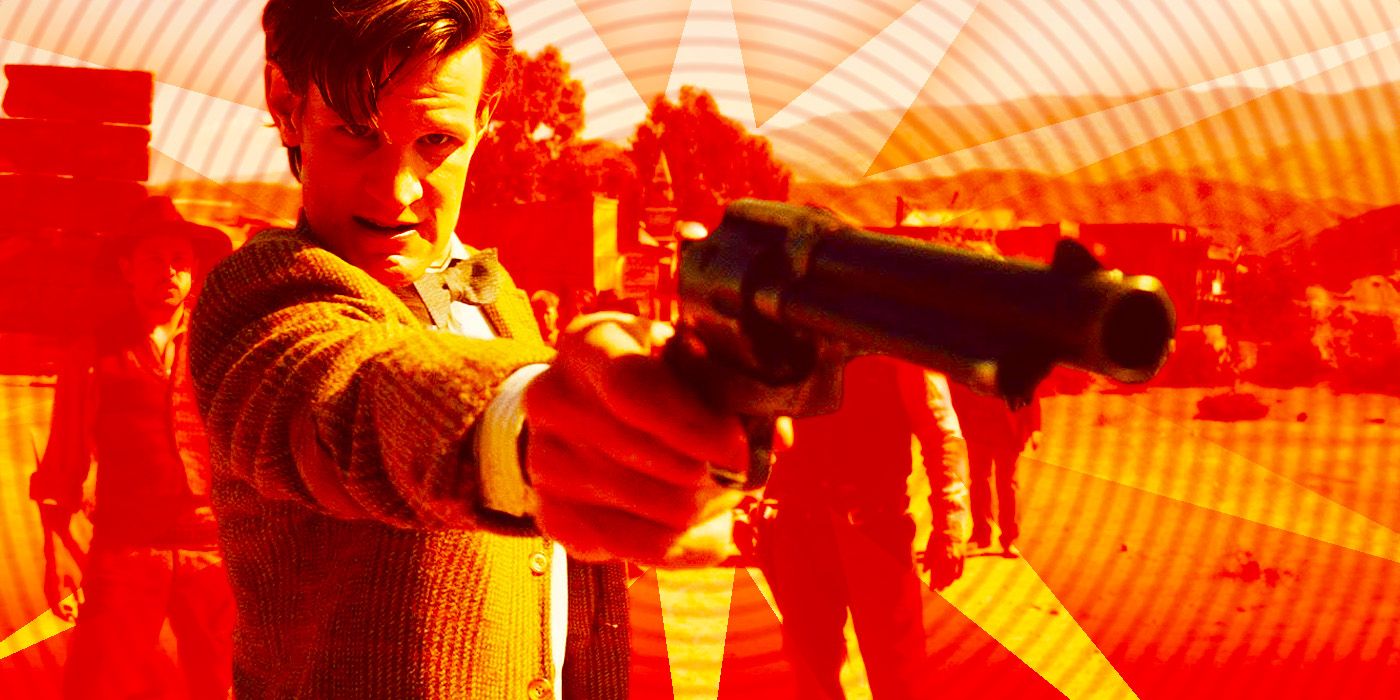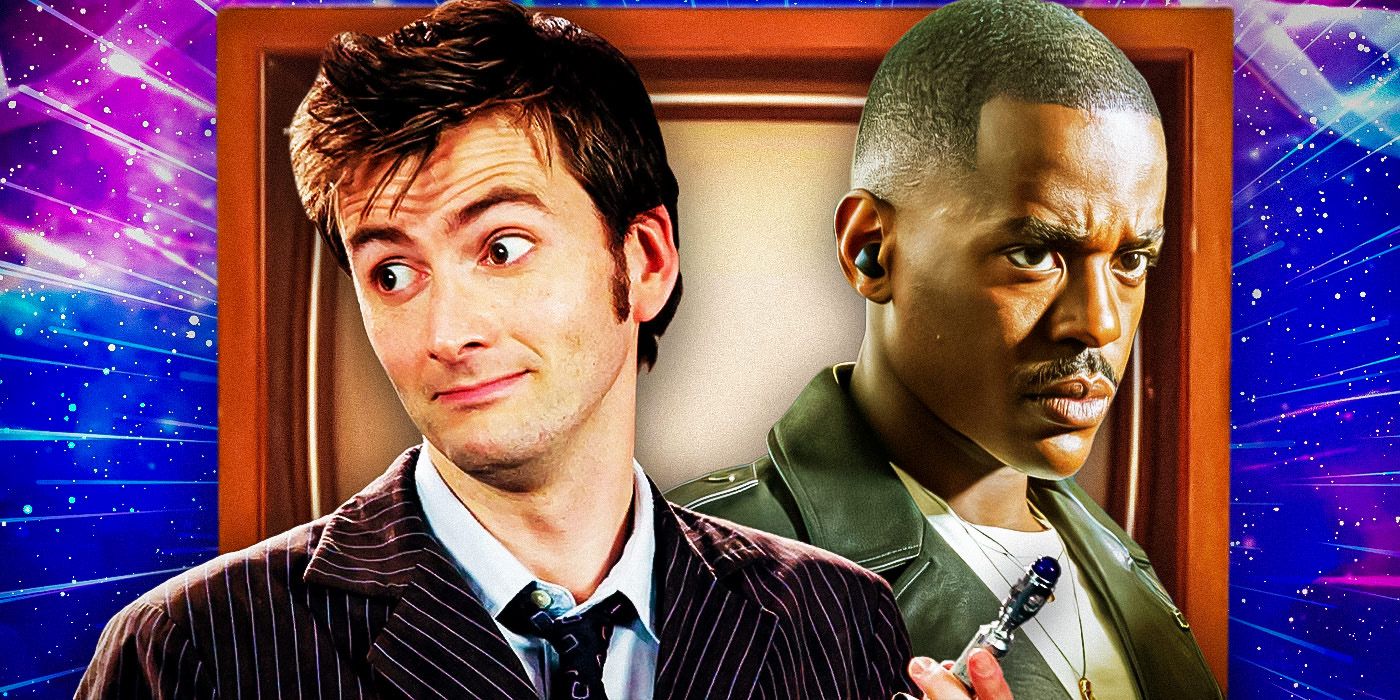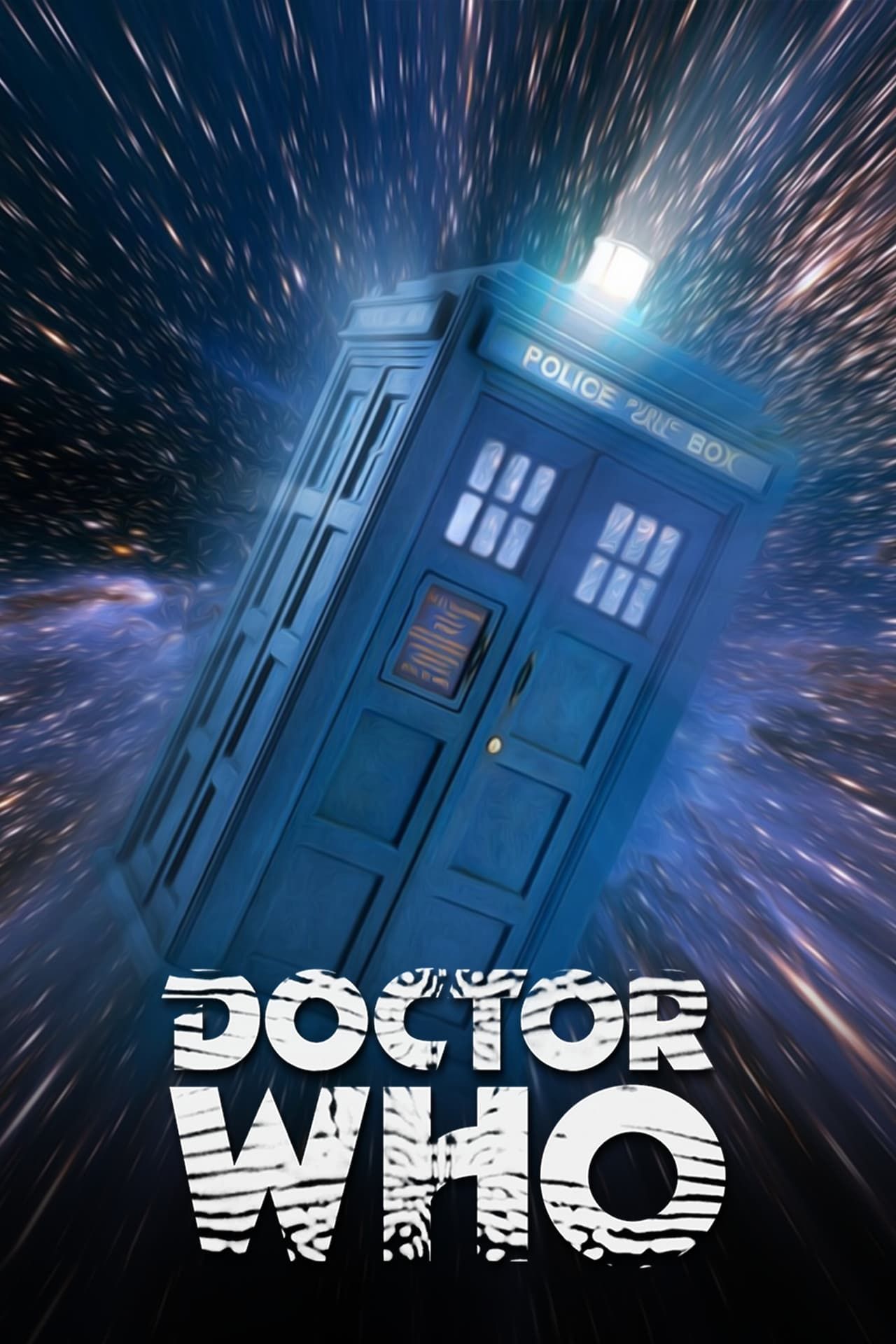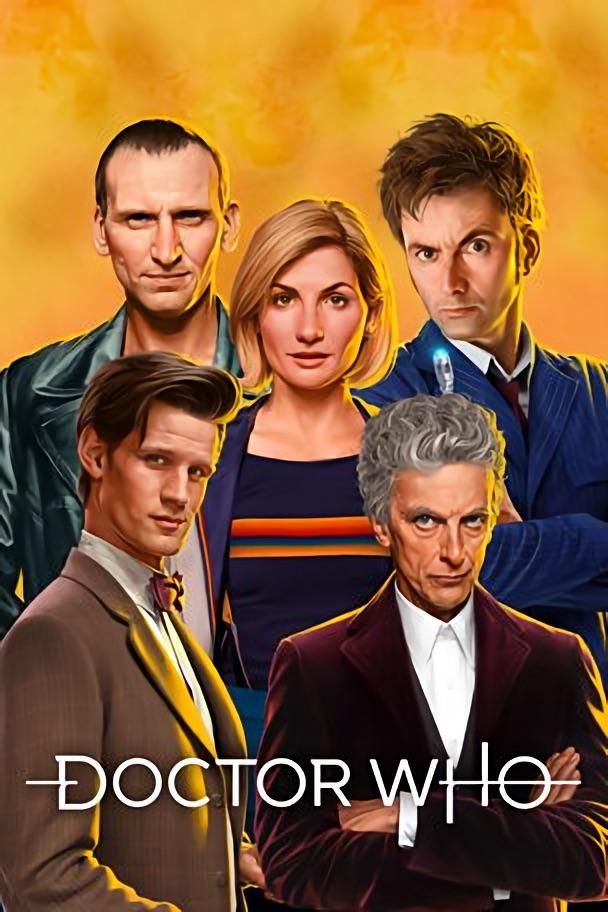While there are plenty of memorable Doctor Who episodes, there are also several underrated stories that simply aren’t as appreciated as they should be. The greatest Doctor Who stories of all time stand out for their iconic villains, gripping plots, and brilliant characters. However, there are other installments from both the classic and modern eras of the show that also contain these elements, yet are underrated by audiences for various reasons.
The post 2005 reboot of Doctor Who is typically remembered better by current audiences, and while there are some harsh realities of Doctor Who’s classic era, there are still many great stories to enjoy. Every incarnation of the Doctor has a serial or episode that isn’t as well received as others, but this doesn’t mean they’re terrible, either. Regardless of why, it’s important to know that these underrated Doctor Who serials are still endearing and fantastic watches, and many just don’t realize it yet.
10
“Invasion of the Dinosaurs”
Classic Era – Third Doctor – Season 11, Serial 2
“Invasion of the Dinosaurs” is often mocked because of the poor visual effects, especially for the prehistoric creatures. Of course, this serial is from the ‘70s, and the appearance is pretty bad even by classic Doctor Who standards, but this doesn’t necessarily make the story awful. “Invasion of the Dinosaurs” is the Third Doctor’s most underrated Doctor Who story because it delves into the complications of altering human history.
With some of the Doctor’s allies at UNIT unexpectedly being the villains of the serial, this story offers a refreshing change of pace. “Invasion of the Dinosaurs” contains an Earth invasion in Doctor Who many should remember, but don’t necessarily, and it’s fascinating to see humanity at risk from something other than an alien threat.
While it’s one of the campiest inventions Doctor Who ever introduces, watching the Third Doctor drive around in the Whomobile is brilliantly comical. Sarah Jane is also as fantastic as ever, pushes on even when she is injured, and uses her investigative skills to help save the day.
9
“Paradise Towers”
Classic Era – Seventh Doctor – Season 24, Serial 2
“Paradise Towers,” from Sylvester McCoy’s first season of Doctor Who as the Seventh incarnation of the Time Lord, often receives a lot of hate. This is generally because the classic era’s season 24 is considered terrible, but “Paradise Towers” is the shining gem of the Doctor Who installment. The titular setting is an unusual one for Doctor Who, but it highlights the eeriness of the story well.
“Paradise Towers” begins as a slice-of-life story, with Mel wanting to go swimming at the titular complex, but it quickly turns into an investigation into the mysterious caretakers. “Paradise Towers” has great characterizations, and Kroagnon is an intriguing example of the evil architect sci-fi trope.
Related
Exclusive: Classic Doctor Who star Bonnie Langford breaks down how working with multiple Doctors has affected her character Mel Bush over the years.
There’s no doubt that plenty of moments are cheesy, but there’s also dark undertones, especially with the cannibalistic elements of the serial. Although “Paradise Towers” is a typical Doctor Who story in many ways, it also mixes things up. It may not be received as a brilliant story in the classic era, but if it were to be attempted again in the modern era, it would likely be a standout.
8
“Boom Town”
Modern Era – Ninth Doctor – Season 1, Episode 11
“Boom Town” is an amazingly underrated story and one of the best Doctor Who episodes by Russell T Davies. The season 1 episode is a great standalone story, and it’s easy to understand what’s happening when the Ninth Doctor unexpectedly reunites with Margaret the Slitheen, even if audiences haven’t seen “Aliens of London” and “”World War Three.”
“Boom Town” is the only adventure with Jack travelling in the TARDIS that isn’t his introductory or departure story, delves into how Rose leaving with the Doctor impacts her relationship with Mickey, and also establishes the Cardiff Space-Time Rift. Many think that “Boom Down” doesn’t provide much to the overall season arc, but it does.
The Ninth Doctor’s moral dilemma over Margaret is gripping, but the overall excitement of the episode, sharp dialogue, and comical moments are what makes “Boom Town” such a fantastic story.
The events of the episode are crucial to how Team TARDIS end up on the Bad Wolf station, and the Doctor also gains the extrapolator, a piece of equipment that is essential to the Time Lord’s survival in later seasons. The Ninth Doctor’s moral dilemma over Margaret is gripping, but the overall excitement of the episode, sharp dialogue, and comical moments are what makes “Boom Town” such a fantastic story.
7
“Gridlock”
Modern Era – Tenth Doctor – Season 3, Episode 3
“Gridlock” is fascinating because it revisits a location from the previous season, New New York from “New Earth,” but with a twist. With New New York barely standing anymore, the Doctor realizes how his involvement in the events of “New Earth” not only causes the downfall of the planet’s civilization, but it also sends him on a wild goose chase to save Martha.
“Gridlock” sees the return of the Macra for the first time since the classic Doctor Who era’s “The Macra Terror.” The Doctor Who monster redesign means the Macra are bigger than ever, too. The crab-like creatures may not come face-to-face with the Doctor, but the fact they are lurking in the shadows of the motorway is even more unsettling. “Gridlock” is inventive with its locations, and it takes the basic concept of a traffic jam and adds a fearful sci-fi twist.
Plus, this episode marks an important moment in the Tenth Doctor’s story. The Time Lord finally allows himself to open up to Martha about Gallifrey and the Time War, something that he and audiences don’t expect from him, especially since losing Rose.
6
“42”
Modern Era – Tenth Doctor – Season 3, Episode 7
“42” shows the Tenth Doctor in one of his most vulnerable moments, and Martha is forced to keep him safe, a common occurrence that happens more than once throughout season 3. With the sun being the main villain of the episode, and not having a physical form, the limited amount of time to save the SS Pentallian creates a ridiculously intense atmosphere.
The premise is both simple and complex, and Captain McDonnell’s dedication to save her husband is a great layer to the story. As the crew members die off one-by-one, the stakes are raised, and the ticking clock doesn’t make things easier. “42” is Martha’s first official trip as the Doctor’s companion, and she immediately proves why she’s the right person for the job.
She doesn’t hesitate to bite back and is tough, and without Martha, the Doctor would likely burn to death. “42” humbles the Doctor too, as by the end of the episode, he discovers he needs Martha more than he realizes, and despite what he projects to the universe, he isn’t immortal.
5
“The Unicorn And The Wasp”
Modern Era – Tenth Doctor – Season 4, Episode 7
“The Unicorn and the Wasp” sees the Doctor encounter a historical figure in Doctor Who, the iconic author Agatha Christie. What’s great about this episode is that Christie isn’t just a cameo or a gag, she’s a fully fleshed out character who plays an important part in the story. The Cluedo-style murder mystery is a great premise, and the addition of an alien insect antagonist makes it even better.
“The Unicorn and the Wasp” is also a fantastic episode for the Tenth Doctor and Donna’s friendship. Donna provides some hysterical moments throughout, like when she is trapped in a bedroom with the Vespiform, or when she kisses the Doctor to shock him and help save his life.
All the supporting characters are unique and offer something new to the story, but Christie is always the main focus. This episode highlights how important Christie and her works are to history, and while many remember season 5’s “Vincent and the Doctor” because the Doctor shows a famous figure the impact they have on society, they forget that “The Unicorn and the Wasp” tries to do the same.
4
“A Town Called Mercy”
Modern Era – Eleventh Doctor – Season 7, Episode 3
The Doctor breaks his own rules in Doctor Who when he visits the titular location during the season 7 episode “A Town Called Mercy.” This Western-style episode is often forgotten by many because Doctor Who doesn’t often delve into this kind of genre, but this doesn’t mean it’s a bad story. The gun-slinging Eleventh Doctor is a new and darker side to the character, and paired with the backdrop of the wild west, “A Town Called Mercy” is a brilliant entry to the Ponds’ final episodes.

Related
22 Times Doctor Who Proved The Doctor Does Use Guns
Throughout Doctor Who’s 60-year run, the Time Lord has been insistent on being a pacifist and anti-weapon, but some moments prove otherwise.
The Gunslinger is a brilliant villain, both design-wise and in terms of his dialogue. His prompting pushes the Doctor to lose it over memories of Doctor Who’s Time War, and it demonstrates a fascinating parallel between the Time Lord and the Gunslinger. Despite the heaviness of the episode, “A Town Called Mercy” also has plenty of hilarious moments, like when the Doctor orders tea at the saloon or talks with Susan the horse.
3
“The Power Of Three”
Modern Era – Eleventh Doctor – Season 7, Episode 4
The episode after “A Town Called Mercy” is also massively underrated. “The Power of Three” is a great way to show audiences how much Amy and Rory change and develop from their introduction in “The Eleventh Hour” to their heartbreaking departure from Doctor Who in “The Angels Take Manhattan.”
The progression of Amy and Rory’s relationship in Doctor Who is clearer than ever in this episode, as the Eleventh Doctor gets to experience their normal day-to-day lives on Earth as they investigate the arrival of the mysterious cubes. Not only is “The Power of Three” an enjoyable slice-of-life episode, but it also introduces UNIT’s Kate Lethbridge-Stewart for the first time in Doctor Who’s modern era.
While there are plenty of funny and endearing moments, the most important part of “The Power of Three” is the Doctor realizing his companions have a life without him.
This is a brilliant way for the show to connect the modern and classic eras, and despite being the Brigadier’s daughter, Kate initially hides her parentage and stands as one of the strongest members of Doctor Who’s UNIT team all by herself. While there are plenty of funny and endearing moments, the most important part of “The Power of Three” is the Doctor realizing his companions have a life without him.
2
“Under The Lake” & “Before the Flood”
Modern Era – Twelfth Doctor – Season 9, Episodes 3 & 4
Season 9’s “Under The Lake” and “Before the Flood” make up one of Doctor Who’s best two-part stories. The Twelfth Doctor adventure is an unusual take on a ghost story, and Toby Whithouse’s eerie narrative is nothing short of enthralling. It’s a shame more viewers don’t discuss this two-parter, especially because of the brilliant deaf representation through the character of Cass.
Cass’ disability isn’t glorified or depicted as a hindrance, simply a part of her, and even in moments where her lack of hearing puts her in danger, the life skills she has help ensure her survival. Some of the Twelfth Doctor’s best lines of dialogue come from these episodes, too, like when he refers to Clara as his carer.
Doctor Who often contains moments that aren’t realistic or logical, but these episodes are a great example of when the show thinks these elements through, like when Clara has to leave the Faraday cage to get a phone signal in order to contact the Doctor. Although the Tivolian ghosts aren’t the real villains, their threatening aura and the fact the Doctor and the crew can’t communicate with them makes everything that much more unsettling.
1
“It Takes You Away”
Modern Era – Thirteenth Doctor – Season 11, Episode 9
“It Takes You Away” is underrated because viewers often focus on the strange frog than the true meaning and underlying message of the episode. This story sees some much-needed development in the relationship between Graham and Ryan. Graham faces his grief over Grace once again when the Solitract takes on the form of his late wife, who later battles with the decision of whether to stay with an image of her, or return home with the Doctor.
This episode shows how important it is that Graham and Ryan keep the other afloat after losing Grace. They aren’t the only prominent familial connection, however, and guest characters Hanne and Erik’s story is also deeply emotional.

Related
Doctor Who’s 15 Best Seasons Of All Time
Doctor Who is a show that has run for a very long time. Because of this, the series has both incredible seasons and some really weak seasons as well.
Other than the powerful narrative, “It Takes You Away” produces some beautiful cinematography in the picturesque Norwegian setting, and it also provides intriguing lore about the Doctor’s upbringing on Gallifrey, which hints toward Doctor Who’s Timeless Child storyline. Although a lot of Doctor Who episodes are underrated for being unmemorable, this one is such because audiences simply focus on the wrong qualities.
-

Doctor Who (1963) is a British sci-fi television show that follows the adventures of the Time Lord known as the Doctor, who travels through time and space in the TARDIS, a time-traveling ship disguised as a British police box. The Doctor, played by various actors over the years, encounters numerous foes and allies while striving to right wrongs and save civilizations.
- Release Date
-
November 23, 1963
- Cast
-
William Hartnell
, Patrick Troughton
, Jon Pertwee
, Tom Baker
, Frazer Hines
, Nicholas Courtney
, Pat Gorman
, Elisabeth Sladen - Seasons
-
26
- Creator(s)
-
Donald Wilson
-

An alien from the planet Gallifrey travels through time and space to explore, solve problems and fight injustice while also making friends with human beings. His spaceship, called TARDIS, resembles a police box, but it is much more than it appears to be.
- Release Date
-
March 26, 2005
- Cast
-
Jodie Whittaker
, Christopher Eccleston
, David Tennant
, Matt Smith
, Peter Capaldi
, Billie Piper
, Karen Gillan
, Catherine Tate
, Jenna Coleman
, Alex Kingston
, John Barrowman
, Tosin Cole
, Arthur Darvill - Seasons
-
13
- Creator(s)
-
Donald Wilson
, Sydney Newman
This story originally appeared on Screenrant

